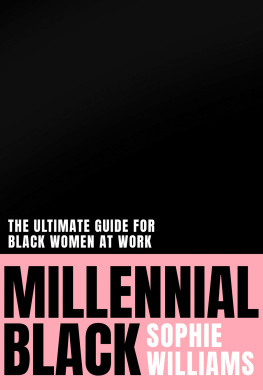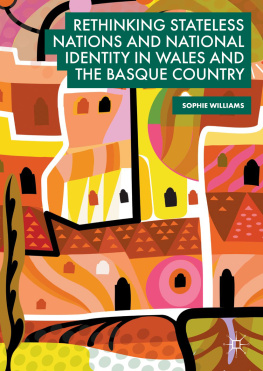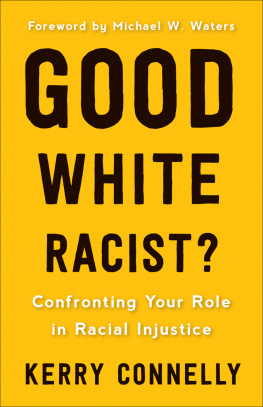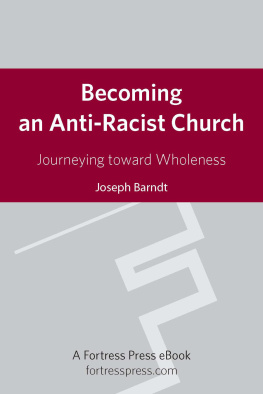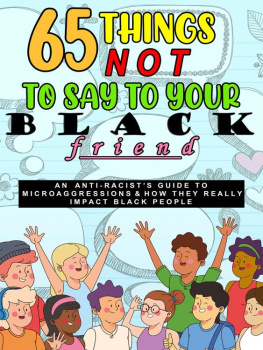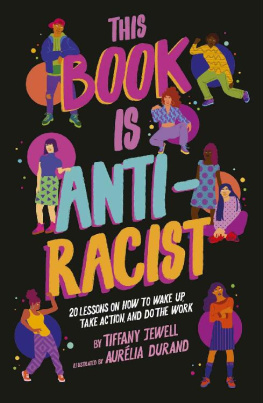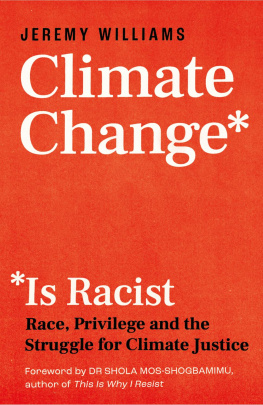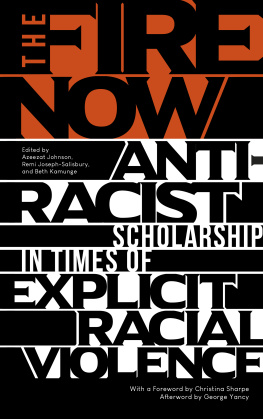Hi! Congratulations on taking your first step in becoming an anti-racist ally. Im so glad to have you here.
This book is deliberately small and a starting point for those who want to learn to become anti-racist allies, by joining the fight for racial equality, or for those who have already made a start but dont know what to do next, or how to keep up the momentum.
Its a bite-sized introduction to the things you need to know to lay the best foundation in your anti-racist allyship journey. You can share it with people in your life who want to use their voices and platforms to make the world a better place but dont know where to begin, or those with whom you want to have difficult conversations. Its a small and accessible resource for you to refer back to along the way.
Although Ive spent years working in and talking about social justice, I began writing this book in the wake of the series of tragic murders that shocked the world in 2020 and galvanized many who had never considered their role in anti-racism to take action in their own lives.
I want to be honest with you from the very start, allyship is not always easythere are no shortcuts or quick winsbut its nowhere near as difficult as facing racism in your everyday life. You will have conversations with people who simply do not want to change the way things have always been. Speaking truth to power and saying it with your whole chest is not meant to be easy. If it were, it would have already happened. There will be a lot of times when you feel that youre pushing against a brick wall. There will be other times when it feels like youre making good progress, only to be told no or be let down at the last minute. Moments like that cant be the end of your journey, they must instead be a chance to regroup, take stock, and try again, even harder than before.
The purpose of this book is to challenge the things weve been taught based on white supremacy, and to seek better and fairer ways to move forward. Questioning the ways by which we operate can feel threatening, or even like an attack, and our response to that can be to close ourselves off and become defensive. Its important to remember that this is a learning process, and part of that is facing difficult truths, feeling uncomfortable, and working through that. Fight the urge to pull away, and make space for discomfort.
Finally, while anti-racism is the focus of this book, the conversation about allyship is not limited to race. Each of us is an individual, made up of several facets. Our race is one of these, but so is our sexuality, gender identity, neurodiversity, class, socio-economic status, disability status, among many others. I hope some of the things we discuss here will help you to feel empowered and encouraged to be the best ally that you can be to all marginalized people.
We need you to be a part of the change.
I thought long and hard about the terms to use in this book about anti-racist allyship. I am a Black woman, and so my instinct is to focus on Blackness, as that is where the majority of my research and the entirety of my lived experience lies. However, we all know that Black people are not the only group marginalized due to the color of our skin in Western society, so to exclude all other marginalized groups doesnt feel right.
On the other hand, I do not like the terms BIPOC, BAME or POC. Thats right, I said it. The reason I dont like them is that I believe, despite these being terms used to refer to non-white people, every one of them centers on whiteness. BIPOC, BAME, and POC all split people into just two groupswhite and other.
In each case, whiteness is a group on its own, distinct from all else. Whiteness stands alone as the status quo against which all other ethnic groups are defined. Everyone who isnt white is lumped together through terms like BAME, POC, and BIPOC without thought for their individual experiences. In this way white becomes a binarywhite or not whiteand all of the subtlety, richness, and variety of different groups is whitewashed away.
After much internal deliberation I have decided to say marginalized groups or just marginalized so far as possible, rather than to use a term I find difficult, or to focus on Blackness at the expense of other marginalized racial groups. On occasions where, for one reason or another, this isnt possible, I will use BIPOC (Black, Indigenous, People of Colora term thats mostly used in America and that puts those who are most impacted by racism in that society front and center) and BAME (Black, Asian, Ethnic Minority) as used by researchers whose work Im referencing.
When I say society I am speaking about Western society, and I appreciate that the nuances of race and racism are not universally similar.
I originally wrote this book with the spelling womxn throughout in order to be inclusive. However, this spelling has since become a term co-opted by those who want to deny the true womanhood of trans and non-binary women. So instead I have used women, but please know that when I say women I mean all who identify as such, and that all women are real women.
Im not racist is a good place to start, and I presume if youre reading this youre not a racist person, which is great. But Im sorry to say, this really is the absolute bare minimum.
When people say theyre not racist, theyre usually thinking something along the lines of, I see everyone the same, and I would never discriminate against someone based on the color of their skin.
But what theyre not thinking about is being actively anti-racist.
Not being racist is the right foundation, but its a passive state. Its not allyship. To be an effective anti-racist ally, we all need to be actively anti-racist.
WHAT IS ANTI-RACISM?
Anti-racism is not about seeing and treating everyone in exactly the same way. Instead its about understanding the different experiences, perspectives, and (dis)advantages of people from different groups, and working to overcome them.
Anti-racism doesnt gloss over our differences or whitewash the experiences of others.
Anti-racism is about refusing to turn a blind eye when we see discrimination. Its about taking an active stance in our daily lives, calling out every joke, offhand comment, and act of injustice.
Anti-racism is not about self-improvement: being a better person is not the end goal. Its about creating a fairer society for marginalized people, which is a better world for us all.
Anti-racism, and working towards being an anti-racist ally, isnt easy, and it can be uncomfortable or even scary, but its the only way were going to make progress.
So lets get going.
RACISTS ARE BAD PEOPLE. IM NOT A RACIST.
The conversation around racism that most of us have heard since childhood is usually pretty one-dimensional.
Very black and white.
Racism is bad.
People who are racist are bad people.
And you are a good person, so you are not racist.
Since childhood we have been building up our personal mental images of a racistsomeone who is uncaring, violent, dangerous, hateful. Youd know one if you saw one and youd definitely never be one.
But it doesnt quite work like that in practice.
Dont get me wrong, Im not saying its not true that racism is bad (I cant believe I just had to say that), but Im also saying that the conversation is more nuanced than that simple good/bad binary leaves space for.
Instead of helping marginalized groups, this good/bad, black/white binary has made it really difficult for us to find the gray when we come to examine our own lives, actions, and the systems that have benefited us along the way.
ISNT RACISM OVER?
The reassuring thing about the idea of racist people being 80s skinheads or members of the KKK dressed in white robes is that theyre easy to spot. If you find yourself burning a cross in a white hood one day, you might have accidentally become a racist. If you beat up people from other races in the street or refuse to hire someone because of the color of their skin then, uh oh, you got racist.


